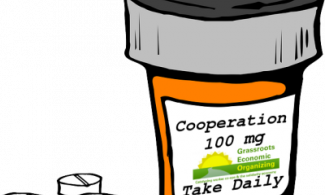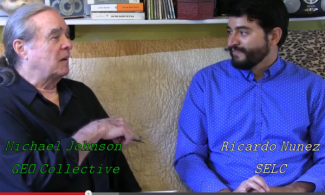TRANSPARENCY AND TRUST
In this series of blogs I am developing a narrative about how we maintain and change ourselves and our cultures. Here’s the core of it (taken from the first in the series):
Blame and punishment head toward destructive outcomes. Empathy and loving move toward creation. The first are grounded in a relational under-culture of scarcity and fear; the second, in a relational under-culture of abundance and basic goodness. Both of these relational under-cultures are intertwined within every individual I have known (whatever their original culture), within every situation I have been in, within every social change movement I identify with, in every historical event I have read about.
This idea tends to defy common sense. When I talk about it face-to-face with curious people, however, they can get it if we share our actual experiences of this dynamic. Below is an excerpt from a posting of a non-political blog. (Well, not ‘directly’ political in the usual sense of the word.) She shares some of her early sexual experiences and reflects on the horrors many of us went through with the contradictory cultural dictums around sex running rampantly through our heads. I share it here because she graphically lays out how the two relational under-cultures we have received from our culture play out in this area of life. I think it plays out in every area.
I hope her contribution can shed light on my underlying conviction:
Movements to advance democracy have to think in terms of changing cultures. To do this movement people have to be in a flow of becoming that change themselves. We embody the culture we are trying to change. At the same time we see greater possibilities, and ask why not. We are the problem seeking to become the solution. In this sense the personal is so much the political.
Excerpt from Teenage Panic:
I was a pretty savvy teenager, intellectually. My school sex ed wasn't much, but I'd been through every page of Scarleteen and the sex chapter of every "you and your health" book I could get my hands on. I'd read up on the correct methods for every kind of contraception and the symptoms of every infection. My problem wasn't lack of education, not exactly. My problem was an all-consuming terror of punishment. I'd been able to unlearn misconceptions about the biological details, but I hadn't unlearned the idea that having sex was a very wrong and forbidden act.
The morning after I had sex for the first time, I woke up with a crushing feeing that I'd done something evil and I was going to be caught and punished. The next time I saw my parents, I was terrified. I thought they were going to catch some nuance in my speech or gestures and go "Wait a second... you're acting like a sex-haver! You are in so much trouble." This didn't happen, but the feeling of guilty terror lingered.
And I think it was that guilty terror that led me to my paranoia. I was so convinced that I had been bad and would be punished, I believed biology itself would punish me. It didn't help that I'd grown up hearing about how pregnancy and STIs were "consequences" for sex. Health class, parents, teachers, media, and peers had always talked about these things not as risks that adults have to manage, but as dire fates (or worse, humiliatingly comical fates) for sluts. At age 15, I took a certain toxic-girl-hate pride in being Responsible and Pure. At age 16, I'd had a penis inside me.
This nasty mess of emotions did nothing to stop me from having sex, of course. There was a whole other mess of emotions telling me that you're undesirable and you're not growing up and you're not in a real relationship if you don't have sex, and those won out in the end. (Plus I was really horny.) And by "in the end," I mean "within two hours"--I had sex almost immediately the first time I found out a guy wanted to have sex with me. So much for convincing kids to wait. All I was convinced to do was have sex, but feel absolutely terrible about it.
But you can't say there was no deterrent effect, because I was powerfully deterred from seeking any kind of medical advice or testing. That would be humiliating beyond measure, I was convinced. It wouldn't feel like asking for help; it would feel like turning myself in. Saying "I need an STD test" felt to me like saying "I'm a disobedient slut who probably got what she deserves," and I couldn't face that shame. I'd rather just take my chances. Even though I was terrified of my chances.
God we fuck up teenagers' heads. We tell them that biological conditions are moral punishments and then we get all shocked when they don't practice rational risk management of biological conditions. We teach them "sex is super desirable and all the cool kids do it, and it's hideously shameful and will destroy your life" and we wonder why they act an eensy bit neurotic about it. If you tried to design a system for making sexually active kids confused and unsafe, you couldn't do much better than the American media and school system.
And for once, the answer is relatively simple. Just talk about sex like it's a part of life. Some people have sex and some people don't, because people are different. STIs aren't bad because they're Dirty Crotch Rot; they're bad because they're contagious illnesses like strep throat or whooping cough, and you can ask a doctor to check for and treat them just like you would with strep throat. Unwanted pregnancy isn't a scarlet A; it's a mostly-preventable accident that sometimes occurs when people are going about their normal business of having sex. You can ask the school counselor about a variety of topics, including career planning, problems at home, questions about sex, or conflicts with teachers.
If we could just get the goddamn stick out of our collective ass and accept that sex is a human activity and teenagers are humans, maybe there wouldn't be quite so many plaintive "I don't understand my body and I'm confused and scared and I don't know anyone I can ask in person" messages flying out into the world.
Yes, transparency and trust.



Add new comment